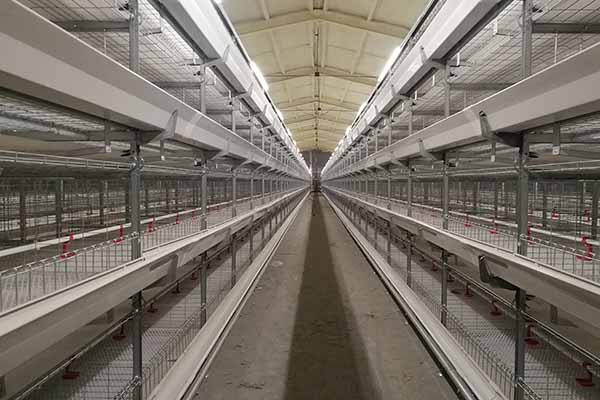Uganda Chicken Farm Automation Management: Future Trends and Livi’s Role in the Industry
Time : 2025-07-26
As a leading poultry equipment manufacturer from China, Livi Machinery is at the forefront of innovation in the poultry industry. With a focus on Uganda’s chicken farm automation management, we are excited to explore the future trends and how our solutions can contribute to the growth and efficiency of the sector.
Introduction to Uganda’s Chicken Farming Industry
Uganda, a country in East Africa, has seen significant growth in its poultry industry over the past decade. With a growing population and increasing demand for meat and eggs, the industry has become a vital part of the country’s economy. However, traditional farming methods have their limitations, and there is a growing need for automation and modern management practices.
The Need for Automation in Chicken Farming
Automation in chicken farming refers to the use of technology to manage various aspects of the farming process. This includes feeding, watering, monitoring health, and collecting data. The goal is to improve efficiency, reduce labor costs, and enhance the overall health and productivity of the chickens.
Why Automation is the Future Trend in Chicken Farming
1. Increased Productivity: Automation can lead to a significant increase in productivity. By automating tasks such as feeding and watering, farmers can focus on other critical aspects of farm management.
2. Reduced Labor Costs: While initial investment in automation can be high, the long-term savings on labor costs can be substantial. This is particularly important in countries like Uganda where labor is often in high demand.
3. Enhanced Animal Welfare: Automation can help in creating a more controlled environment for chickens, which can lead to better health and welfare. For example, automated systems can ensure that chickens have access to fresh water and food at all times.
4. Data-Driven Decision Making: Automation systems can collect and analyze vast amounts of data, providing farmers with valuable insights into the performance of their flock. This data-driven approach can lead to more informed decision-making.
Livi Machinery’s Role in Uganda’s Chicken Farm Automation
At Livi Machinery, we understand the unique challenges faced by chicken farmers in Uganda. Our range of poultry equipment is designed to meet these challenges and drive the industry forward.
1. Automated Feeding Systems: Our feeding systems ensure that chickens receive the right amount of feed at the right time. This not only optimizes growth but also reduces waste.
2. Watering Solutions: Our automated watering systems provide a consistent supply of fresh water, which is crucial for the health and well-being of the chickens.
3. Health Monitoring Equipment: Our health monitoring equipment allows farmers to keep a close eye on the health of their flock. Early detection of diseases can significantly reduce losses.
4. Data Collection and Analysis Tools: Our systems are equipped with advanced data collection and analysis tools, enabling farmers to make informed decisions based on real-time data.
Future Trends in Chicken Farm Automation Management
1. Artificial Intelligence (AI): AI is expected to play a significant role in the future of chicken farming. By analyzing data, AI can predict disease outbreaks, optimize feeding schedules, and even adjust the farm environment to improve chicken welfare.
2. Blockchain Technology: Blockchain can be used to track the origin of poultry products, ensuring food safety and traceability. This is particularly important in regions like Uganda, where food safety is a major concern.
3. Sustainable Farming Practices: As the world becomes more environmentally conscious, sustainable farming practices will become increasingly important. Automation can help reduce the environmental footprint of chicken farming.
Conclusion
The future of chicken farming in Uganda is bright, with automation and modern management practices leading the way. At Livi Machinery, we are committed to providing innovative solutions that help farmers meet the challenges of the future. By embracing automation, farmers can not only improve their operations but also contribute to the growth and sustainability of the poultry industry in Uganda.












